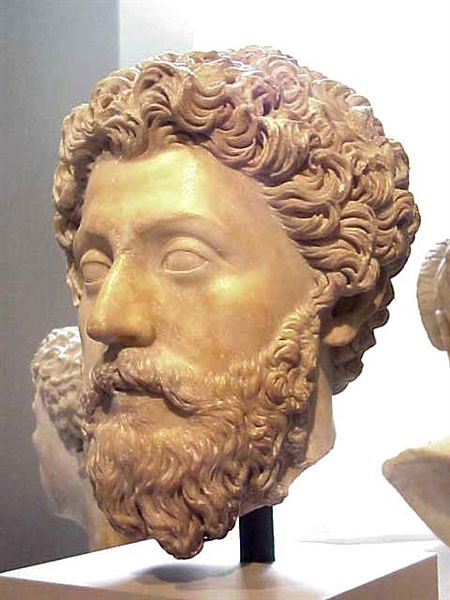
Around 170 CE, the Roman Emperor Marcus Aurelius authored one of the most well-known philosophy books. He wrote “Meditations” while leading bloody military campaigns against the Germanic tribes along the Danube frontier and while the Antonine plague ravaged Europe. Yet, through these trying times, he found solace in his own mind, in writing…in philosophy. “Meditations” is a must read. I found it to be thought-provoking and full of practical advice.
Aurelius was a Roman emperor, philosopher and one of the most prominent Stoic thinkers. Born in 121 AD, he was adopted by Emperor Antoninus Pius and succeeded him in 161 AD, ruling until his death in 180 AD.
The fact that this book is published for the world to read is hysterical as Aurelius would be mortified that his personal diary has been read by millions of people. But this is what gives “Mediations” its beauty and wisdom, Aurelius was not trying to sell books or reach the masses, he was navigating the troubles of his life. Moreover, Aurelius also had his reservations about the throne. He loved philosophy more than the power of his position. He was upset when he left his mother’s house for the imperial palace of Rome.
Here are some of my favorite passages from “Meditations.” I included sections and page numbers so you can locate them easily in your own copy for further reading.
“Remember how long you’ve been putting this off, how many extensions the gods gave you, and you didn’t use them… there is a limit to the time assigned to you, and if you don’t use it to free yourself it will be gone and will never return.” (II, p.18).
This passage embodies the saying “Momento Mori,” remember death. Your time is limited, every second that passes is death and we cannot allow that to scare us; rather, it should inspire us to do more. Further, Aurelius is reminding himself to seize every moment of the day and discard procrastination. He echoes this sentiment later on in book nine: “Don’t look down on death, but welcome it. It too is one of the things required by nature” (IX, p.118).
“Because most of what we say and do is not essential. If you can eliminate it, you’ll have more…tranquility. Ask yourself at every moment, ‘Is this necessary?’” (IV, p.43)
Here, Aurelius recognizes that he must focus his energy. We cannot spread ourselves too thin, focus on what is necessary, and do not burden ourselves with that which does not matter.
“To live life in peace, immune to all compulsions.” (VII, p.97)
We can control our thoughts. It takes time and continued training but when one achieves that discipline, when one becomes the master of their own mind, then and only then can one achieve peace.
“If it’s in your control, why do you do it? If it’s in someone else’s then who are you blaming? Atoms? The gods? Stupid either way.” (VIII, p.104).
Or more simply, if you cannot change or affect something, do not let it consume your energy. It’s a fruitless endeavor to put your time and effort into something that is outside your control; instead, dive full-heartedly into that which you can.
“Enter their minds and you’ll find the judges you’re so afraid of–and how judiciously they judge themselves.” (IX, p.122).
Not even the Emperor of Rome was immune from criticism from others. Aurelius so tactfully identifies that external judgments tend to come from people who are insecure and lack confidence. One should not let the words of others affect their perception of oneself.
“Stop whatever you’re doing and ask yourself: Am I afraid of death because I won’t be able to do this anymore?” (X, p.139).
“Don’t look down on death, but welcome it. It too is one of the things required by nature” (IX, p.118).
Again, Aurelius uses death to contextualize and understand his life. In this case, death is referenced so that one may better understand what they enjoy in life, and if they recognize that which brings them fulfillment, then they should focus on that. Do not waste away doing things that are unenjoyable, you do not have enough time to waste it so carelessly.
“To live a good life. We have the potential for it. If we can learn to be indifferent to what makes no difference.” (XI, p.153).
In short, control your thoughts or they will control you. There are many instances where you can practice indifference: from traffic to weather and your response to other people’s actions, we can be happier if we are more indifferent. But this does not mean you should not care about those things that do not directly affect you, it is just regulating how much you allow these things to impact you.
These quotes give us an idea of what Aurelius writes in “Meditations,” but there is a lot more knowledge and wisdom to be taken away from his words.



TJ Havens • Apr 26, 2024 at 5:02 pm
The meditations of Marcus Aurelius are timeless / eternal. I enjoyed reading the selected thoughts from Meditations. Additionally, I appreciated the comments of each quote by the site’s editor.
Thank You!